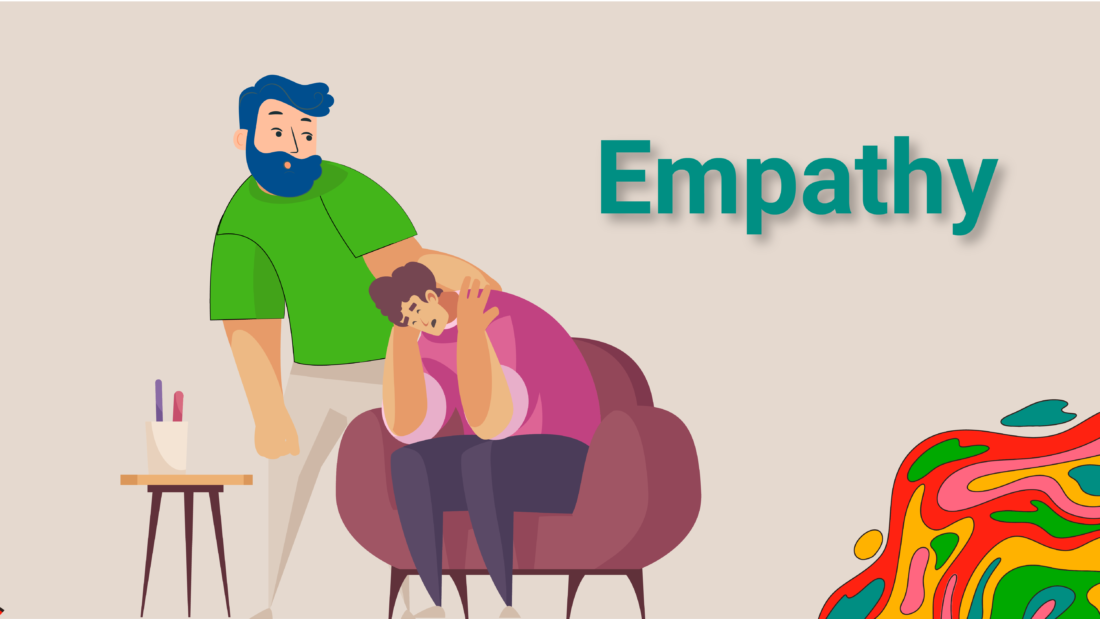Empathy is the capacity to understand how another person may be feeling from their frame of reference and not our own. Simply put this means to see things from the other person’s perspective, and put yourself in their shoes to understand their emotions and behaviour and where it may be coming from.
Individuals who are able to access empathy are more likely to bring compassion to the table, as they are able to go beyond their own feelings or thoughts at any given point of time. Empathy is a valuable skill and a crucial component of emotional intelligence, particularly important for persons in positions of leadership inorder to understand the needs, thoughts, feelings, and wants of their teams.
Empathy can be of 3 types:
Affective empathy, which involves the ability to recognise and appropriately respond to the emotions of others.
Somatic empathy, which involves reacting physically to what another person is going through. Sometimes people can actually feel what another person is feeling. For instance, you may begin to blush or feel queasy when you witness someone else blushing or feeling uncomfortable.
Cognitive empathy, requires having the ability to comprehend another person’s mental health and potential thoughts in response to the situation.
Concern for the well-being and happiness of others is a sign of having a high level of empathy. It also implies, though, that thinking about other people’s emotions constantly can occasionally leave you feeling burdened, exhausted, or even completely overwhelmed. As a result, empathy fatigue may occur. The exhaustion you could experience after frequently being exposed to painful or traumatic experiences is referred to as empathy fatigue. You might also experience a lack of energy, isolation, or numbness.


Mental Health at Work
Powered by - Equilibrio Advisory LLP - Assisting in Building Equitable & Safe Spaces
 Cart is empty
Cart is empty 

